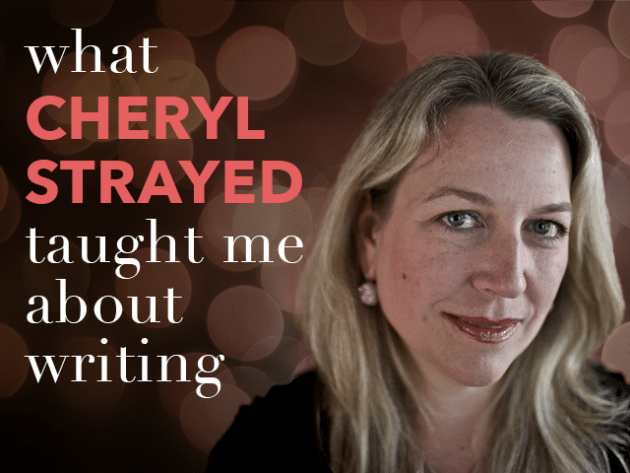This week I am at a five-day writer’s retreat taught by Cheryl Strayed, the author of the critically-acclaimed, Oprah-stamped, book-turned-movie Wild.

If you are a Cheryl fan, then I’m here to tell you that she is as awesome as she appears to be in her book and Dear Sugar advice columns. She’s as engaging a speaker as she is a writer, and her lessons and writing prompts are so inspiring I now have ideas for two new essays and a plan to make my novel stronger.
It’s only been two days, and it’s impossible for me to share everything, but over the next series of posts I’m going to try.
The first lesson I learned from Cheryl Strayed: Lean Into Subjectivity.
Lean Into Subjectivity
Cheryl says that she is often asked how she ensured the accuracy of her memoir. How did she remember everything and did she worry about her portrayal of, for example, her abusive father.
Her answer is essentially no. Why? Because she leans into the subjectivity of her vantage point.
While she does feel a responsibility to try to get the facts right in her work, leaning into subjectivity means that she embraces the fact that it’s her story. That she may not recall every precise detail. That she’s biased. It’s her truth as she remembers and understands it, and that’s all she needs to aspire to.
It's true that others may have a more loving story to tell about her father, but that story would be no more or less accurate than the one she told.
Lean Into Your Fictional Character’s Subjectivity
I think this idea of leaning into subjectivity is a valuable lesson in fiction as well, especially when writing in the first person narrative voice.
It’s a helpful reminder of the limits of the first person point of view. When a character describes her first kiss, for example, she’s not telling the reader how it happened, but rather how she remembers it. This is an important distinction to keep in mind as we write fiction.
How objective are you when you write?
PRACTICE
Take fifteen minutes to tell us a story from your childhood in as much detail as possible. How are you biased? Do others remember the story differently? Share in the comments section below.



This posting is a poignant memory, but please change “they walked away from my parents” to “we walked away.” You were on only one person’s lap, correct? You may want to write more with a first person narrative, even if it is not a memoir. The rescuer is an intriguing character you may want to flesh out to remember more.